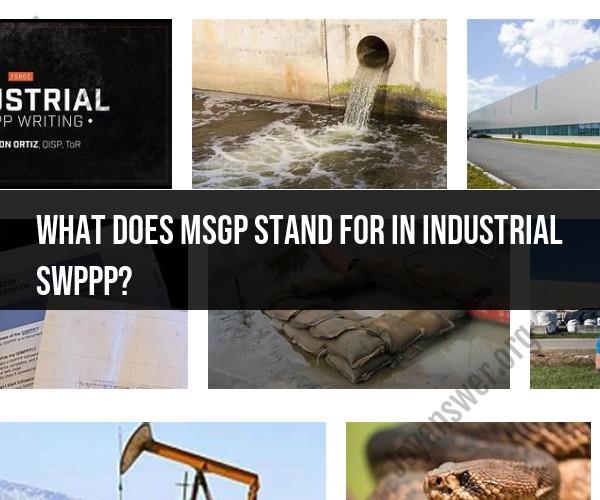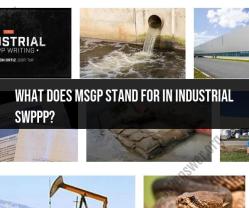What does MSGP stand for in industrial swppp?
In the context of environmental regulations and stormwater management, "MSGP" stands for Multi-Sector General Permit. It is a permit issued by regulatory agencies, such as the United States Environmental Protection Agency (EPA) or state environmental agencies, to regulate stormwater discharges associated with industrial activities.
"SWPPP" stands for Stormwater Pollution Prevention Plan. This plan outlines the measures and strategies that an industrial facility must implement to prevent or minimize the discharge of pollutants in stormwater runoff from their site. The goal of a SWPPP is to protect water quality by controlling and reducing the contamination of stormwater before it enters local water bodies.
The significance of MSGP in industrial SWPPP can be understood in the following ways:
Regulatory Compliance: Industries that fall under the purview of the MSGP are required by law to obtain and adhere to the permit's requirements. The permit sets forth specific guidelines and standards that industrial facilities must follow to manage stormwater effectively and prevent pollution.
Pollution Prevention: The MSGP aims to reduce the discharge of pollutants, such as sediments, chemicals, oils, and other contaminants, into nearby water bodies. This helps safeguard aquatic ecosystems and protects the quality of water resources, including rivers, streams, and lakes.
Environmental Protection: Implementing an effective SWPPP based on the MSGP requirements contributes to the protection of local ecosystems and biodiversity. By managing stormwater runoff, industrial facilities can help prevent habitat degradation and harm to aquatic life.
Community Health: Clean and healthy water bodies are essential for the well-being of communities that rely on them for drinking water, recreational activities, and other uses. Preventing pollution through proper stormwater management benefits both the environment and public health.
Mitigation of Legal and Financial Risks: Failure to comply with the requirements of the MSGP can result in legal penalties and financial liabilities for industrial facilities. By implementing an adequate SWPPP and adhering to the terms of the MSGP, facilities can mitigate these risks.
Corporate Social Responsibility: Taking proactive steps to prevent pollution and manage stormwater runoff demonstrates a commitment to environmental stewardship and corporate social responsibility. It enhances a company's reputation and sustainability efforts.
Continuous Improvement: The MSGP often requires industrial facilities to monitor and report their stormwater management activities regularly. This promotes continuous improvement in pollution prevention strategies and encourages facilities to adapt to changing environmental conditions.
In summary, the significance of MSGP in industrial SWPPP lies in its role in regulating stormwater discharges from industrial sites, protecting water quality, minimizing environmental impact, and ensuring compliance with environmental regulations. It is a vital tool for promoting responsible industrial practices and sustainable water management.


